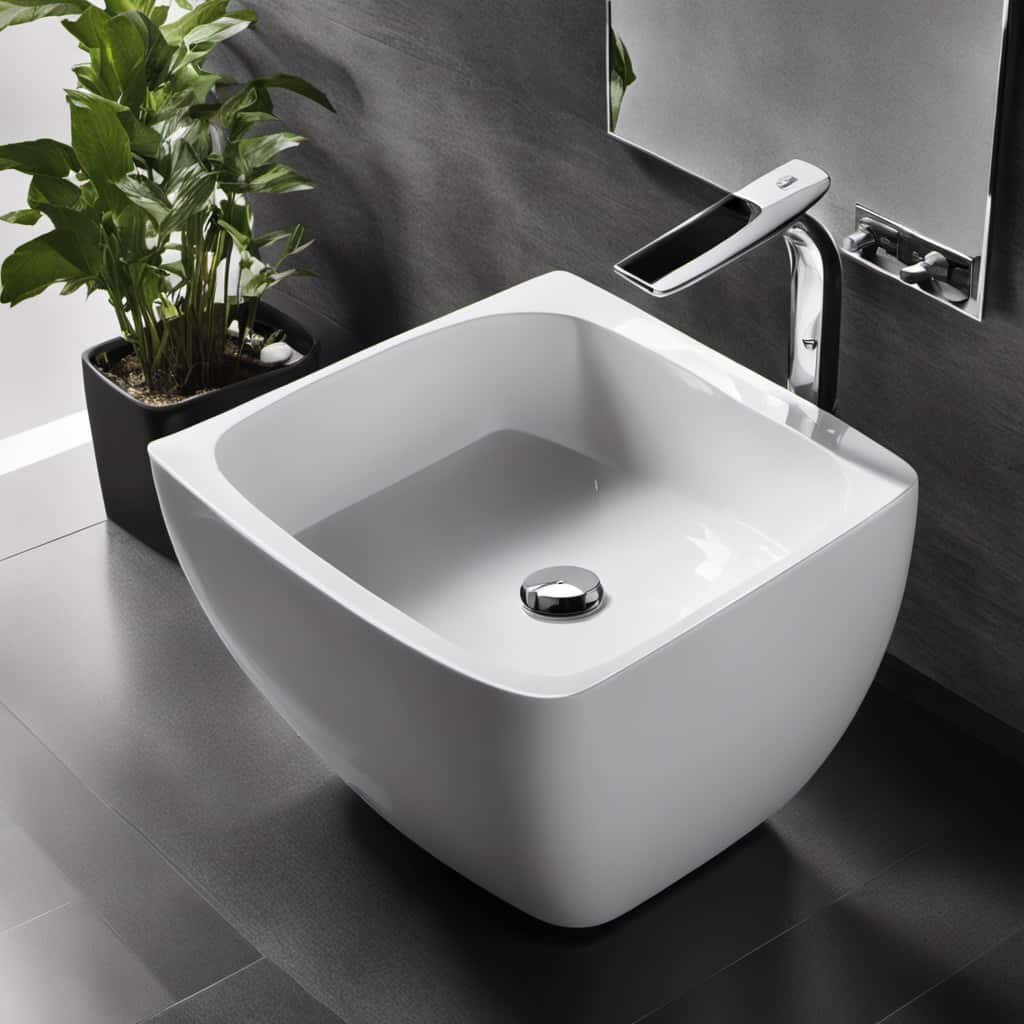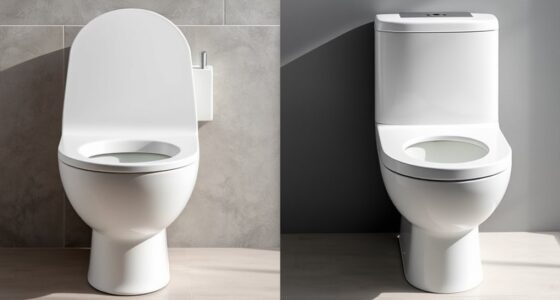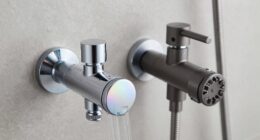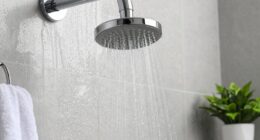Ladies and gentlemen, let’s dive into the depths of the flushable wipes debate. Are these seemingly convenient products truly safe for our plumbing systems?
In this article, we will unravel the truth, exploring the validity of flushability claims and the potential risks they pose.
With scientific precision, we’ll analyze the environmental impact of flushing wipes and provide alternatives for those seeking mastery over their plumbing habits.
Prepare to be enlightened and empowered as we navigate this critical topic together.

Key Takeaways
- Flushable wipes can cause serious plumbing issues and do not break down like toilet paper, leading to clogs and blockages.
- Studies have debunked the flushable claims of these wipes and revealed non-biodegradable materials, causing costly repairs and long-term damage.
- Marketing tactics using terms like ‘flushable’ and ‘sewer-safe’ can be misleading to consumers, as some wipes labeled as flushable do not disintegrate quickly enough.
- Flushing flushable wipes has significant environmental impacts, contributing to clogged sewer systems, pollution in waterways, and the formation of fatbergs in sewer systems.
The Truth About Flushable Wipes
The truth about flushable wipes is that they can cause serious plumbing issues. Despite their convenience and popularity, the flushable wipes controversy has been a topic of concern for many plumbing professionals and environmentalists alike. These wipes, although marketed as flushable, don’t break down in the same way toilet paper does. This leads to clogged pipes, blockages, and expensive repairs.
Numerous studies and investigations have debunked the flushable wipes claims, revealing that they don’t disintegrate quickly enough to safely pass through the plumbing system. The issue lies in the materials used to make the wipes, which are often non-biodegradable and can take years to break down.
It’s crucial for consumers to understand the potential risks associated with using flushable wipes and to explore alternative, more environmentally friendly options. By gaining a deeper understanding of the flushability claims, we can make informed decisions regarding our plumbing systems and the impact on the environment.
Understanding the Flushability Claims
To truly understand the flushability claims, we need to delve into the science behind what happens when flushable wipes are introduced into our plumbing systems. Despite the marketing tactics surrounding flushable wipes, there are some consumer misconceptions about their true flushability. Manufacturers often use terms like ‘flushable’ or ‘sewer-safe’ to imply that these wipes can be safely flushed down the toilet without causing any issues.

However, the reality is that even though these wipes may be able to make it through the toilet and into the sewer system, they can still cause significant problems downstream. These wipes don’t break down as easily as toilet paper, leading to clogs in the pipes and potential damage to the sewage infrastructure.
As we explore the potential risks to your plumbing system, it’s important to understand the limitations of flushable wipes and the impact they can have.
Potential Risks to Your Plumbing System
We should be aware of the potential risks that flushable wipes pose to our plumbing system.
While these wipes may be marketed as flushable, they can still cause potential clogging and long term damage to our plumbing infrastructure. Despite their claims of being able to break down in water, flushable wipes don’t dissolve as easily as toilet paper. This can lead to blockages in pipes and sewer lines, causing costly repairs and inconvenience.

The fibers in these wipes can also accumulate over time, leading to further blockages and potential damage to the plumbing system. It’s important to take precautions and dispose of flushable wipes in the trash instead of flushing them to avoid these potential risks.
Environmental Impact of Flushing Wipes
Flushing wipes has a significant environmental impact. When it comes to the disposal of flushable wipes, there are a few key factors that contribute to this impact:
- Microplastic contamination: Flushable wipes are often made of synthetic materials that don’t biodegrade easily. As a result, they break down into microplastics, which can be harmful to aquatic ecosystems.
- Impact on wastewater treatment plants: Flushable wipes can clog pipes and pumps in wastewater treatment plants, leading to costly repairs and increased energy usage.
- Strain on the system: The high volume of wipes being flushed can overwhelm the capacity of the wastewater treatment plants, causing inefficiencies in the treatment process.
- Water pollution: When wipes bypass the treatment process, they can end up in rivers, streams, and oceans, contributing to water pollution and harming marine life.
- Carbon footprint: The energy and resources required to manufacture, transport, and dispose of flushable wipes contribute to greenhouse gas emissions.
Considering the detrimental effects of flushing wipes, it’s important to explore alternative methods of disposal that are more environmentally friendly.
Alternatives to Flushing Flushable Wipes
Using reusable cloth wipes is a more sustainable option for disposing of flushable wipes. Reusable cloth wipes are made from biodegradable materials, such as organic cotton or bamboo, which reduces the environmental impact compared to disposable flushable wipes. These cloth wipes can be easily washed and reused, eliminating the need for single-use products.

By choosing reusable cloth wipes, we can significantly reduce waste generation and decrease the demand for non-biodegradable materials used in disposable flushable wipes. Additionally, reusable cloth wipes are cost-effective in the long run, as they can be used repeatedly, reducing the need for constant repurchasing.
Making the switch to reusable cloth wipes is a practical and environmentally conscious choice that promotes sustainability and reduces the negative impacts of disposable flushable wipes.
Frequently Asked Questions
Can I Flush Non-Flushable Wipes Down the Toilet?
We cannot flush non-flushable wipes down the toilet. Doing so can lead to clogs and damage to plumbing systems. It is important to dispose of non-flushable wipes properly to minimize the environmental impact.
Are There Any Regulations or Standards in Place for Flushable Wipes?
Yes, there are regulations and standards in place for flushable wipes. However, it’s important to consider the environmental impact and ensure consumer awareness and education about proper disposal methods.

What Are the Main Differences Between Flushable Wipes and Traditional Toilet Paper?
Flushable wipes and toilet paper have different environmental impacts. Flushable wipes may not break down as easily as toilet paper, leading to clogs and sewer backups. However, they offer convenience and thorough cleaning compared to toilet paper.
Can Flushing Flushable Wipes Cause Blockages in Public Sewage Systems?
Flushing flushable wipes can indeed cause blockages in public sewage systems. The disposal of these wipes is a significant concern as they do not disintegrate like traditional toilet paper, leading to potential environmental impacts.
Are There Any Health Risks Associated With Using Flushable Wipes?
Using flushable wipes instead of baby wipes may seem like a safe option, but there are potential health risks to consider. Skin irritations can occur from using flushable wipes, making it important to be cautious.
Conclusion
In conclusion, it isn’t truly safe to flush flushable wipes, despite their claims. The potential risks to your plumbing system, such as clogs and blockages, are significant. Furthermore, the environmental impact of flushing wipes is detrimental, as they contribute to sewage backups and pollution.

Instead, it’s advised to dispose of flushable wipes in the trash or consider using alternative options, such as bidets or reusable cloths, to reduce waste and protect your plumbing system.
For example, a case study conducted in a residential area showed a noticeable decrease in plumbing issues after individuals stopped flushing flushable wipes.









